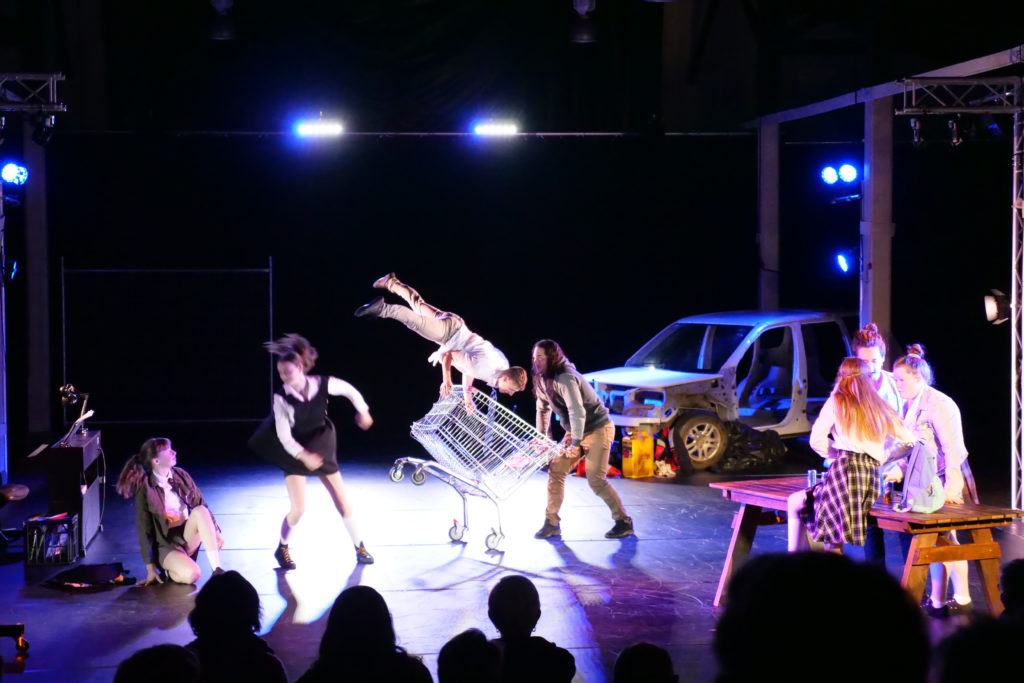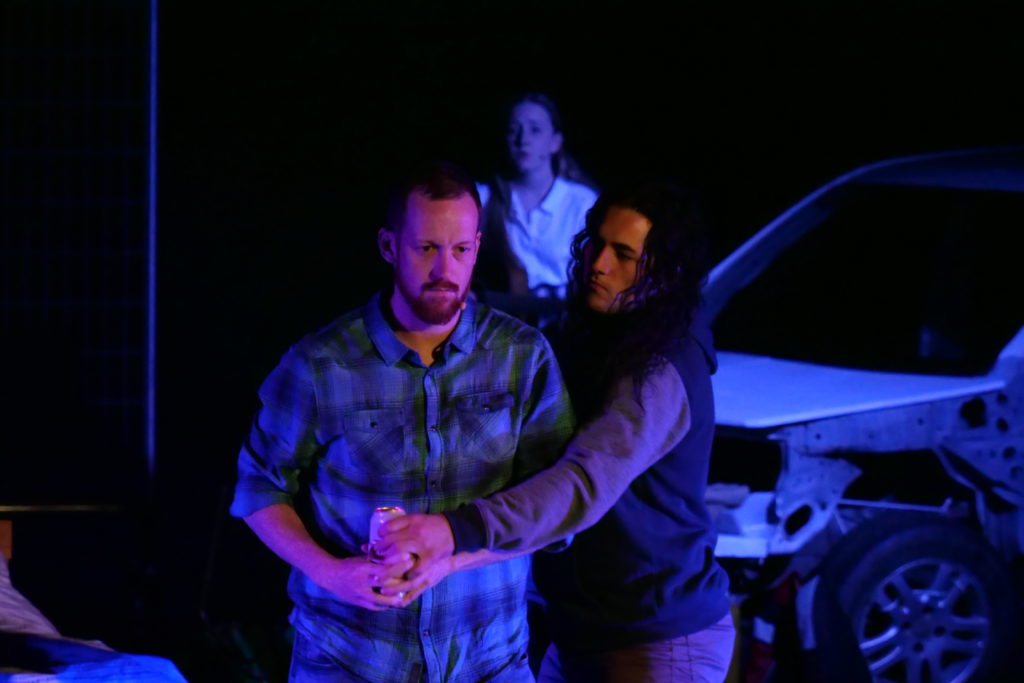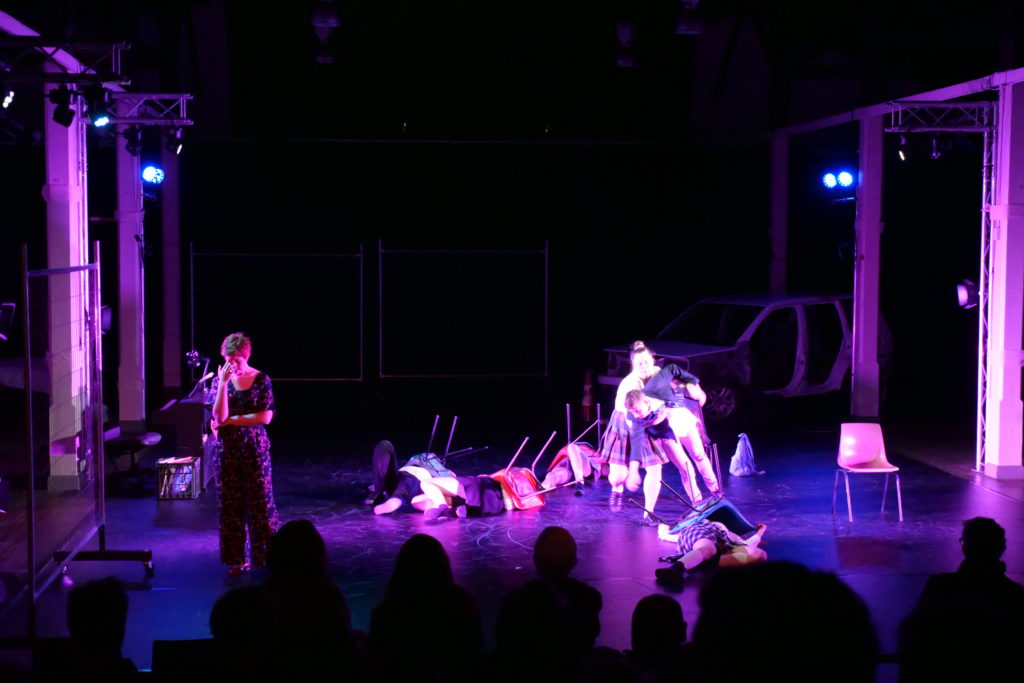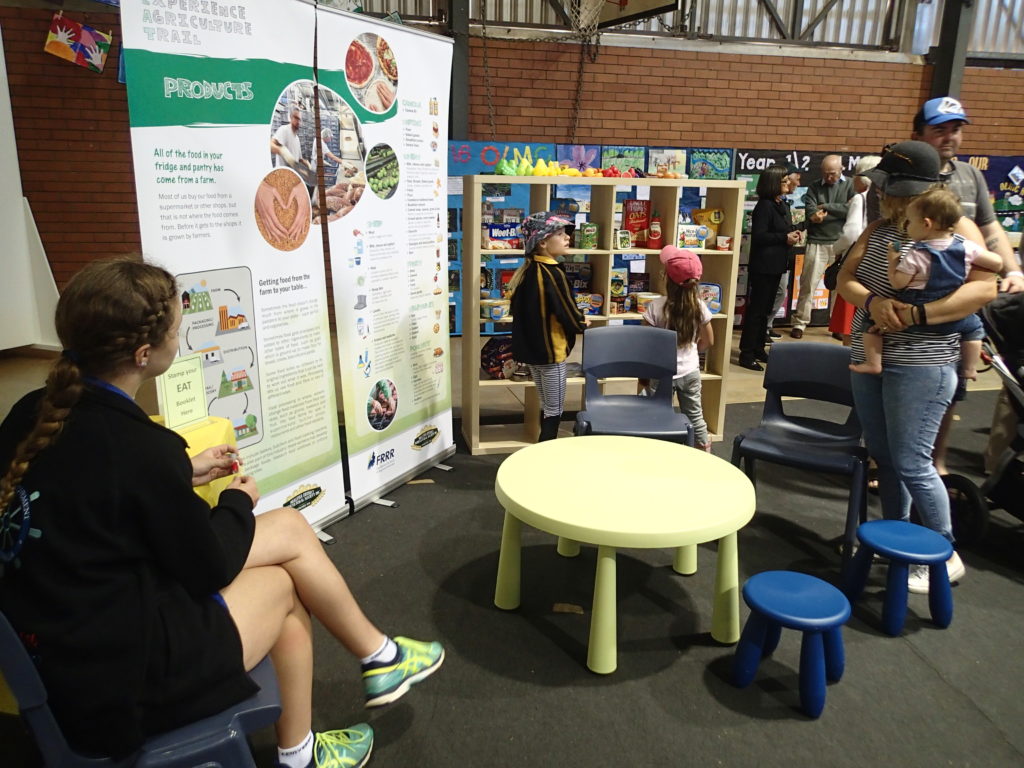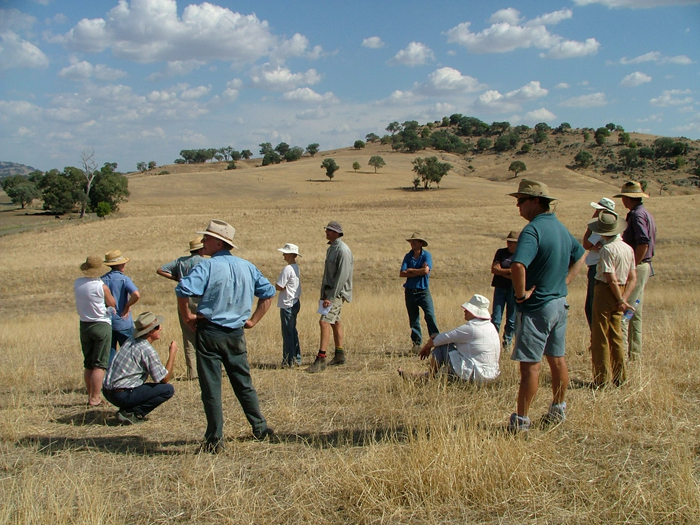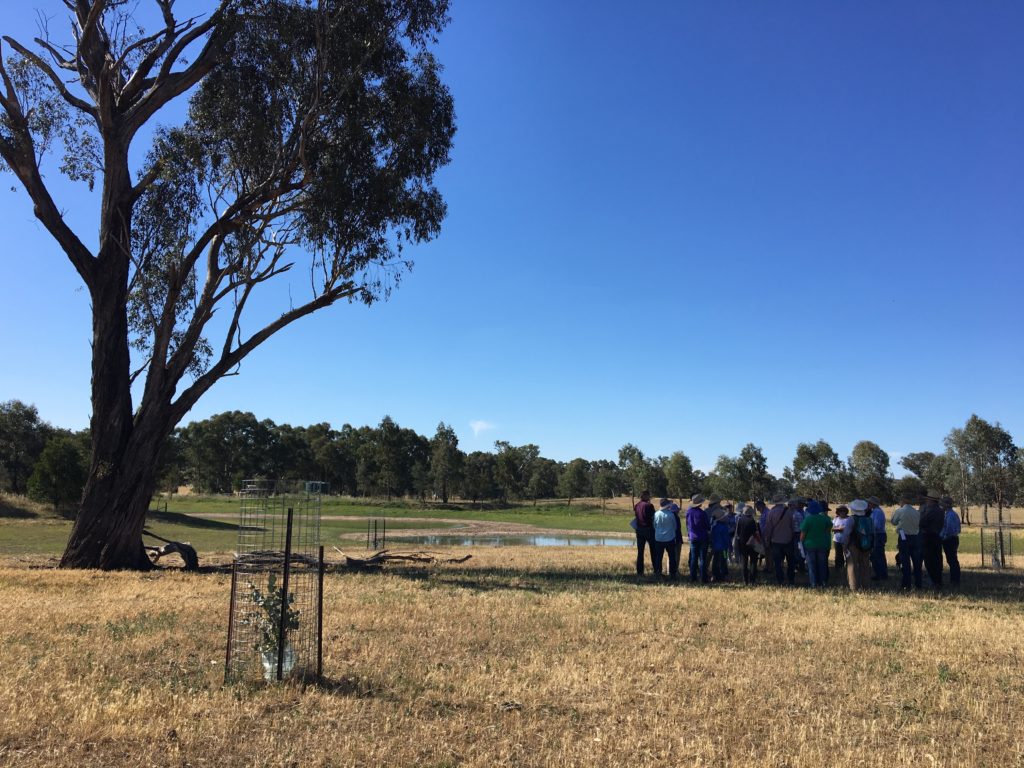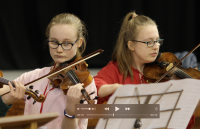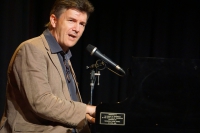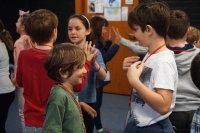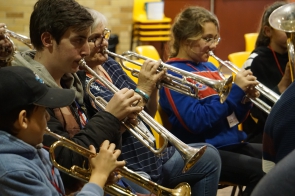Foundation for Rural & Regional Renewal (FRRR)
Tackling stigma around youth mental health
Mental health difficulties are the most common health challenges for young people, with between 20-25% of Australian adolescents experiencing a mental health or substance abuse issue in any given year. In the Bega Valley, youth mental health has been identified as a major issue facing the region. With a lack of public transport, limited education opportunities and few social spaces for young people – outside of playing a sport – a youth dance organisation has become an important alternative and a vital hub for self-expression and creativity.
Bega-based fLiNG Physical Theatre provides opportunities for young people to work with local and visiting professional artists to create original contemporary performance projects. They aim to give voice to regional perspectives, and designed a powerful youth-centric research and performance project called ‘My Black Dog”, which set out to learn about and support the mental health of young people living in the Bega Valley.
The project had two components; the creation of a moving, original performance exploring youth mental health, and the design and delivery of wellbeing workshops for high school students exploring how they can creatively and practically support their wellbeing. But to deliver it, they needed increased resourcing and capacity.
A grant of $17,700 from FRRR’s In a Good Place program, funded by CCI Giving, was awarded and spread across the project to help realise the final performance outcome. It enabled the employment of two fLiNG Alumni, who returned to the Bega Valley to perform in the work, demonstrating potential future pathways for younger fLiNG Company members, who look to these people as role models. Funds also supported a local year 12 fLiNG Alumni to be employed to co-deliver the Art & Wellbeing workshops in schools around the region, ensuring the program is relevant and speaks on the level of those it’s being delivered to.
The live performance, entitled ‘My Black Dog’, was co-created with fLiNG Company members (14-18yrs) across all aspects of activity. The work’s themes – isolation, disconnection, grief and bullying – were set in a school context, and recognisable for many in the young audience. The uncomfortable territory also revealed the characters’ resilience and capacity for them to reach out and support one another.
It ran for a season of eight performances. This project reached more than 750 individuals, and the Art & Wellbeing workshops were delivered to 152 students in local schools. It all helped to break down stigma, learn about what is occurring in the community, and help generate conversation on an issue that is often difficult to talk about. Each performance was supported by local mental health professionals.
The community response to the show was exceptional, and many were inspired to share their own stories. Exploring and talking about the difficulties that young people come up against is the best way to begin to solve and heal them, and fLiNG Physical Theatre is contributing to the conversation in a highly creative and collaborative way. It was the recipient of the 2019 WayAhead Mental Health Matters Award for Youth, and shortlisted for an Australian Dance Award.
Gabriella Rose, fLiNG’s Co-Artistic Director, explained that the project has enabled a deeper understanding of how mental health issues may present in a young person, and what things can be done to support them.
“It has also revealed the enormity of the problem in regional areas, the lack of infrastructure and support available to isolated people. Through round table discussions with school welfare officers, mental health workers, parents and teens, it revealed how overwhelming the situation can be, but also how hard people are working to build better support structures around vulnerable young people in our community.”
The project’s final report also notes:
“Ultimately the My Black Dog project reiterated that within our community, mental health issues are common, and they can impact everyone. fLiNG’s Artistic Directors saw the Bega Valley community take up the offer to connect with this work and to start a conversation. The more we talk about mental health, the better we will become at looking after ourselves, recognising when we need support, and helping each other get through it.”
The impact of investing in resilience
Hovells Creek Landcare (HCL), NSW received an FRRR grant to support a series of workshops to increase land management knowledge and strategies, at the same time as strengthening community and social connections and wellbeing.
When drought strikes, the toll of the dry land can have an overwhelming impact on a farmer’s livelihood, family and community.
The group has been running workshops on drought and land, and resource management with expert speakers, using a $19,554 Tackling Tough Times Together grant received in the thick of the drought.
These workshops provided Landcare members with the latest thinking and resources for drought management, as well as a social interaction opportunity. They aimed to support farmers and community members to feel that they are doing their best for their livestock, their landscape, their families and themselves – to plan for the future, as much as the present.
To assist with volunteer fatigue impacting the HCL during the demanding drought, the grant also helped to fund a Coordinator to manage the workshops. The Coordinator organised expert speakers, promoted the events and arranged the venues and catering. The grant also funded any expert guest fees and travel expenses.
Experts spoke on topics ranging from managing mental health, to soil and moisture monitoring, and livestock feeding strategies.
Around 50 to 70 people participated, including a mix of Landcare members and local landholders, but with sessions shared online and in newsletters and local media, the insights were shared widely. The participants varied in terms of their level of knowledge and understanding of climate change and its impacts. They all had differing community and individual pressures as a result of the ongoing drought, and were presented with a suite of options to help them respond.
According to one of the former committee members, the workshops had the following impacts on participants: an increase in wellbeing, knowledge and capacity – with much greater awareness of climate change scenarios and importantly the likely local impacts. They learnt about tools, technologies and improved land management practices to effectively, sustainably and productively manage natural resources and adapt to significant changes in climate.
As a result of FRRR’s support for the project, funded by the Stockland CARE Foundation, HCL was able to secure more funding for a soil moisture probe in the Valley to enable producers to access real time moisture levels, rainfall and soil temperature data. This probe will help with plant management and maximise growth opportunities both now and into the future.
The Glen Innes Severn LGA in the New England region of NSW experienced limited rainfall for several years, culminating in severe drought conditions in 2019, and was consequently impacted by the Black Summer bushfires. One local organisation that has been supporting landholders and the community to manage and maintain the natural resource base of the Glen Innes region for the past 31 year is the Glen Innes Natural Resources Advisory Committee (GLENRAC).
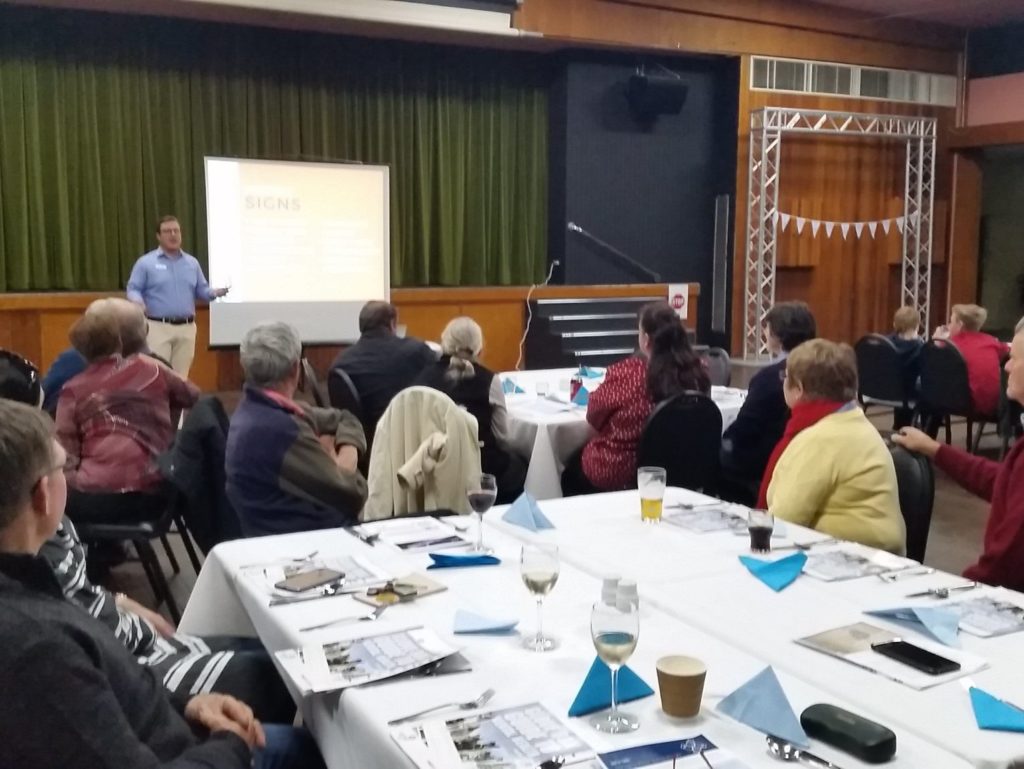
They received a $19,980 grant funded by the Westpac Group from FRRR’s Tackling Tough Times Together program to build skills, knowledge and confidence of the Glen Innes farming community through a series of 12 workshops focusing on drought management techniques, natural resources and sustainable agriculture and recovery. The funding was used to cover the costs of advertising, catering, venue hire, and presenters’ fees and travelling expenses.
Fittingly, the first GLENRAC Focus Event was on the hot topic of water management. Some of the other topics in the series included Restoring Earth, Getting through the Dry, Demystifying Carbon, Focus on Renewables and a Farmer Update. Two other events that were well-attended were the Fit Farmers session, and Rural Women’s Day, both attracting around 45 people.
The workshops also provided a forum for peer support and community connection to assist people with drought recovery, helping to reduce the social isolation that often occurs for landholders who are facing dry and challenging situations, and increasing the connection between those facing similar conditions. In all, a total of 424 people participated in the workshops which were held over an 18-month period from February 2019 to July 2020.
Kylie Falconer, GLENRAC’s CEO said, “These events became important opportunities for our local farmers to connect with other people. Many were busy hand feeding, carting water and dealing with the other unanticipated problems from drought, for example machinery break downs, sourcing feed, or renegotiating finance with banks. People really needed an organised forum to come together, to find out new information on drought matters or other emerging issues such as carbon farming and renewable energy.”
Like many other organisations, GLENRAC demonstrated great agility and flexibility when they had to convert their final three workshops into online webinars due to COVID-19 restrictions – a first for the organisation, and one that was received well by the participants.
“I am most proud of the fact that GLENRAC delivered these 12 events to our community when they needed the information and social connections the most. We were able to help when it mattered most, and feedback from participants has been wonderfully appreciative.”
Kylie Falconer, CEO, GLENRAC Inc.
When faced with the heartbreaking reality of rising deaths among young people, the team at Byron Youth Service (BYS) stepped in to remind their community that young lives matter, and that everyone deserves to feel happy, safe and valued.
Since 1987, BYS has been advocating for young people between the ages of 12 to 24 years old, by creating, supporting and leading community action. Made up of a team of eight staff and ten volunteers, BYS has been the primary provider of youth services in Byron Bay and the surrounding area since their inception.
Sadly, for many disadvantaged and at-risk students in the area, there is no access to computers or the internet at home. Having access to the right information and support can help these students overcome issues such as mental health, substance misuse, self-harm, sexual assaults and eating disorders.
Among one of their many projects, the team at BYS runs Mullumbimby Cottage, where up to 40 disadvantaged students access outreach programs using modern technology, that are designed to build resilience and create a sense of place. The programs on offer at the Cottage provide skills training and facilities that help support and empower young people to overcome the challenges they may face.
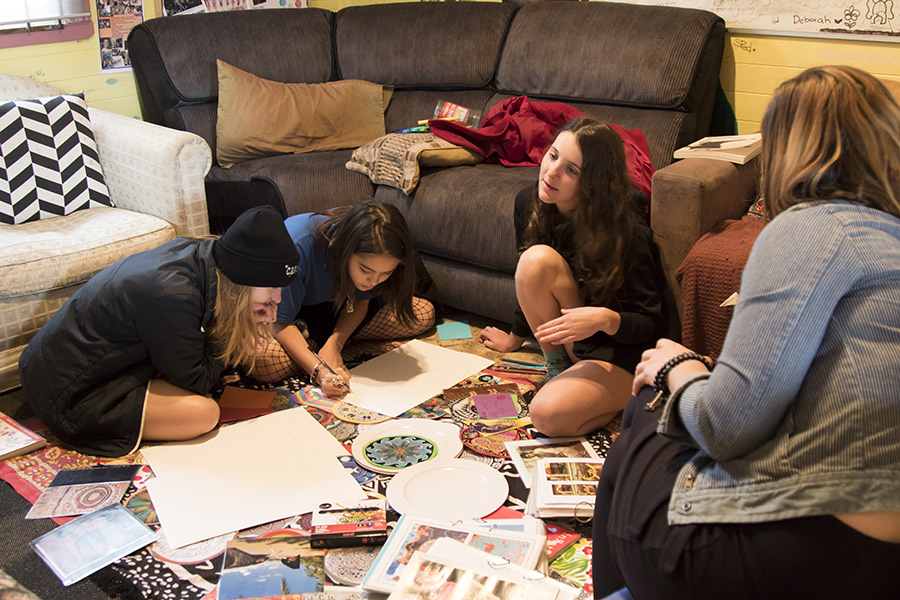
Being able to discuss the issues they’re facing without fear of shame, fear or embarrassment is key in building resilience – and BYS has found that delivering programs using technology can support better outcomes than traditional methods might.
The laptops at Mullumbimby Cottage allow BYS to run information sessions, show videos, and educate participants on safe social media privacy settings. In both individual and group settings, laptops allow youth workers to provide the support needed to disclose any issues or concerns young people have, in a safe and trusting environment.
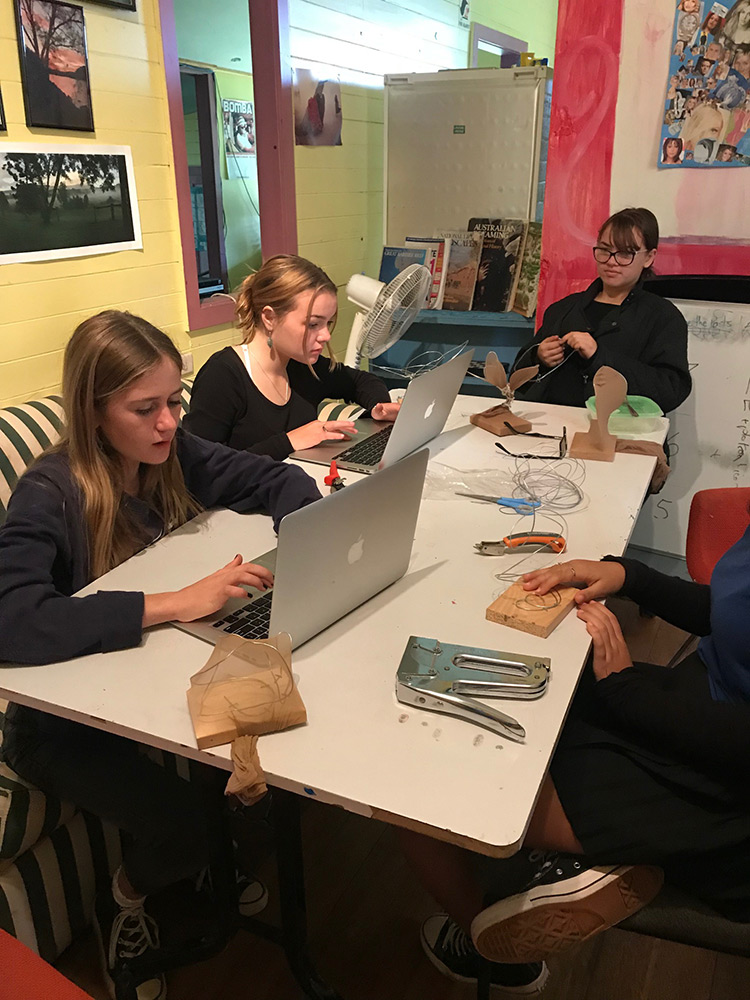
And, after using the same computers to access these programs for over a decade, Mullumbimby Cottage needed a major technology upgrade. Through FRRR’s ANZ Seeds of Renewal program, BYS received a grant for $6,895, which allowed them to purchase five new Apple MacBooks. In addition to having access to the programs BYS run, the new laptops are also available for writing resumes, searching for jobs, researching courses and completing homework.
The contribution Byron Youth Services has made to their local community is incredibly important, and FRRR is proud to support Mullumbimby Cottage on their mission to help every young person reach their full potential.
When teachers at Nambucca Heads High School in northern NSW decided to embark on a practical vocational skills program to help their students become job-ready, the community came on board to help out.
Principal Simon McKinney and Trade School Coordinator Gary Cattanach were looking for an innovative, student led project that would lead to higher retention rates for students and would also boost employment opportunities for Aboriginal students in the community. They settled on designing, creating and constructing a total of five sculptures with cultural significance that continue to be celebrated in a community sculpture installation. The project allowed students to lead their own learning, a method that had already been successful in improving student retention and engagement.
Aboriginal students worked together with community groups, who offered workspaces, mentorship and other in-kind support. The work was completed before, during and after school, in both paid and voluntary capacities, to create these fantastic sculptures. A $20,000 grant from the Innovation for Community Impact (I4CI) program, funded by the NSW Dept of Family and Community Services and The Sally Foundation, meant they could afford the materials they needed, making their dream a reality.
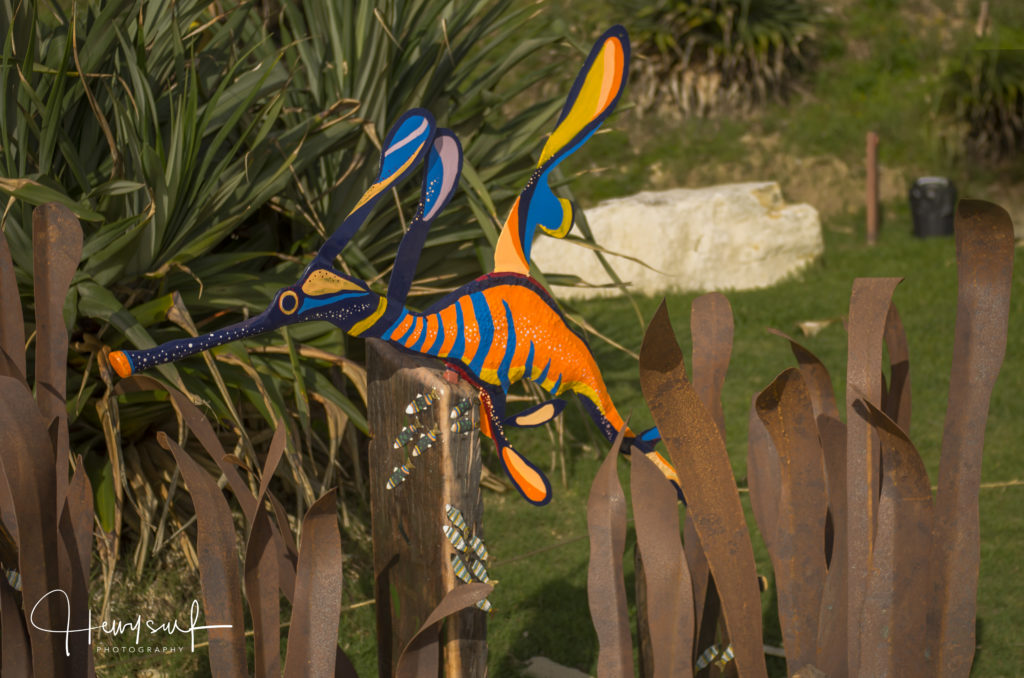
Students who participated in the program also had the opportunity to earn their Bronze Medallion and learn valuable small business skills, increasing both their employability and social capital in the community. By the end of the program, many students had achieved full time, part-time or casual employment.
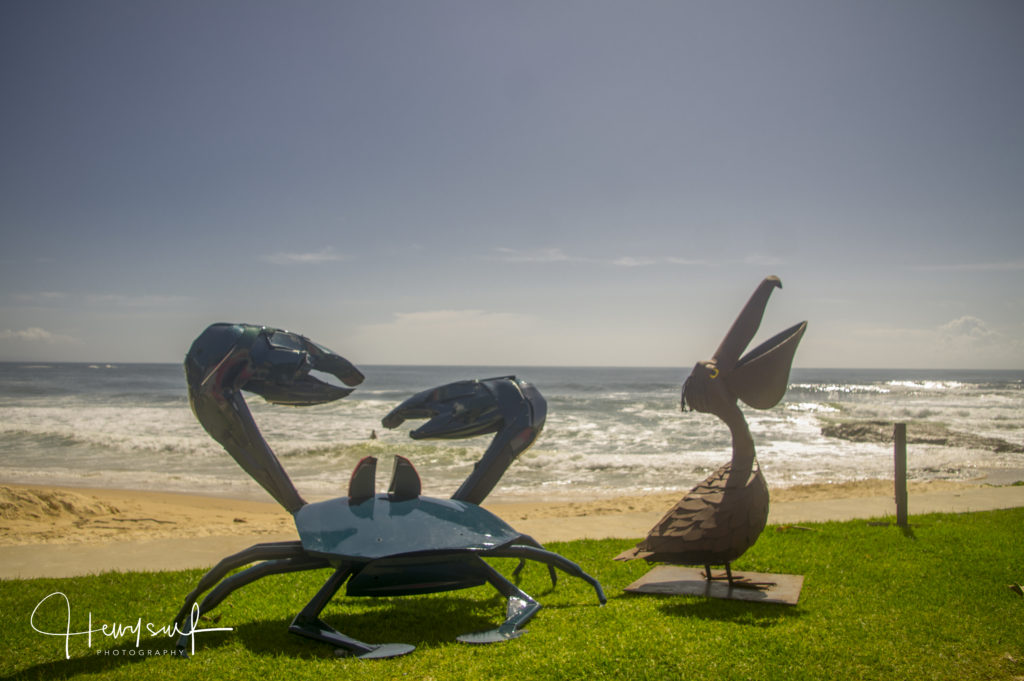
In the acquittal report, Simon McKinney said, “The project allowed all students – girls, boys, and those with special needs – to be on an equal footing. Training and development for future employment were at the centre of all their achievements. The wider benefit is that Aboriginal people are developing and leading communities in employment and youth development.” The project came together in the Maagunda Festival, held on the main beach in Nambucca. The whole community came together to view the statues and learn about the cultural motivations and meaning behind them. To this day, the presence of the sculptures has become a tourist attraction; a welcome outcome for a community heavily reliant on tourism and recovering from bushfires.
For high school students studying agriculture in South East NSW, hands on experience gives them the skills they need to gain employment when they finish their studies. For 200 students from across 11 different schools around Nowra, this meant having a go at the School Steer Spectacular at Nowra Showgrounds.
A $5,500 grant from the ABC Heywire initiative meant that South Coast Beef Producers Association (SCB) could spend three months mentoring students as they learnt how to feed and prepare steer for the Hook and Hoof competition. This involved hands on, industry-based learning with a pathway into the agriculture industry.
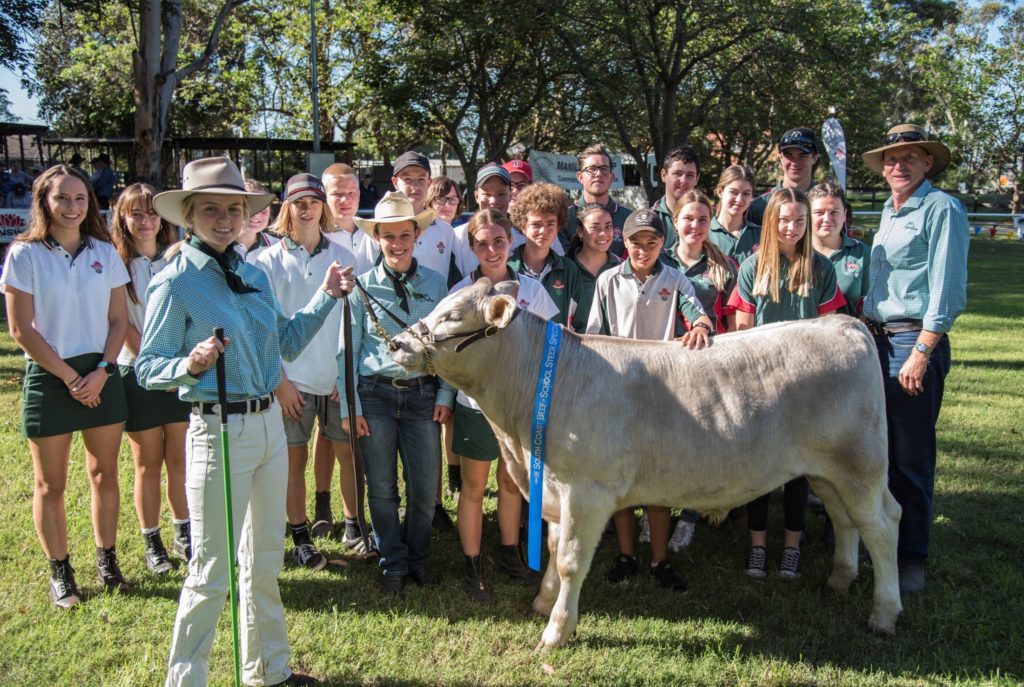
In addition to the steer competition, SCB conducted a number of skills-based workshops to build the students understanding of the techniques required in preparing and showing. These included the selection, grooming, parading and judging of cattle, and carcass assessment. Students were also expected to present a report on the project to a panel of judges. The presentations had to demonstrate: the hands-on preparation of the steer, the animal science and recording of the steer project, the agribusiness and commercial outcomes and how the project was recorded and reported.
The project mentored secondary school students who are studying agriculture and who are interested in a future career in the agriculture industry.
Some schools returned home to commence preparation for the next Spectacular with the students from Moruya High starting their own Beef Cattle Club and negotiating with a local beef producer to provide them with cattle to train for the 2019 Spectacular. Already, a number of students involved in the Spectacular are now studying agriculture at a tertiary level.
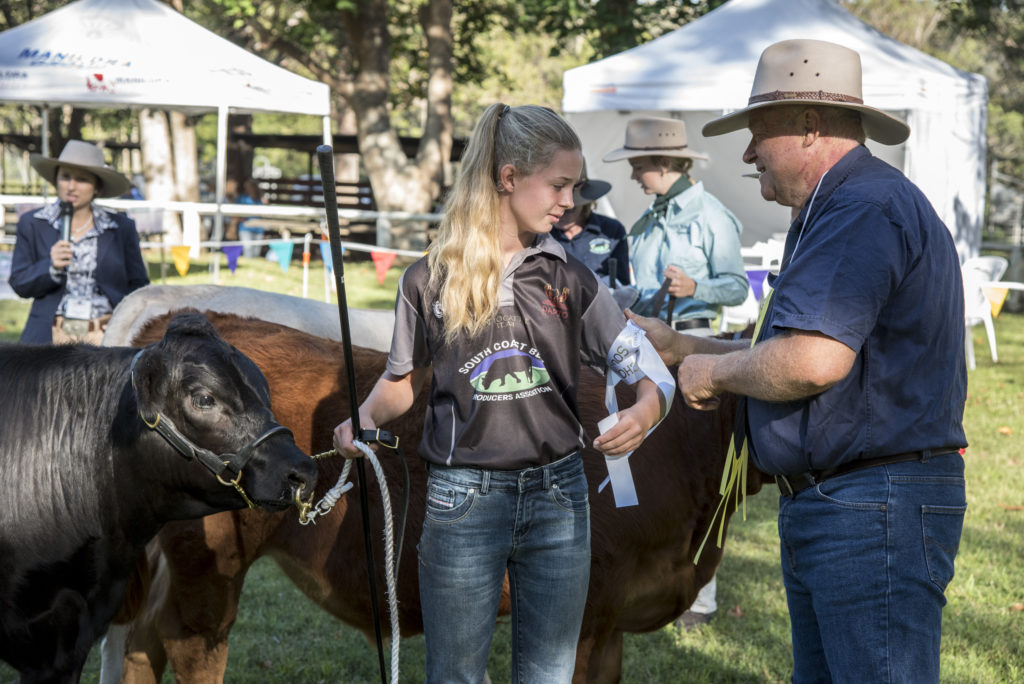
One of the teachers involved said of the day; “Thanks for providing the students with the fantastic opportunity, they really did enjoy and learn which was fantastic.”
Another teacher said; “There is more fruit from the Spectacular, more kids down at the ag plot breaking in cattle, older kids mentoring younger or inexperienced ones. Great stuff!”
When a popular city-based summer school music program made plans to bring the beat to the bush and put on a show alongside it, the whole community of Tenterfield NSW let the rhythm takeover.
Recently ravaged by drought and fires, the small town was experiencing some hard times. Charitable organisation Hartbeat of the Bush teamed up with the Cuskelly College of Music’s Winter Music School in a bid to provide Tenterfield and the surrounding communities with a brief respite from it all – the result was a week long ‘Beat of the Bush’ festival during the July 2019 holidays.
Dr James Cuskelly has run a Summer School music program in Brisbane for years, but it was his long-held dream to bring the music back to the bush, to his roots. Despite the evidence that incorporating music in a child’s education shows life changing benefits, such as improving literacy, numeracy, confidence, behaviour and wellbeing, 63 percent of primary schools in Australia offer no classroom music. In regional and remote schools, there is limited or no musical and arts-based education, and opportunities for children to actively participate as performers and artists, under the mentorship of professionals and in front of an audience, is rare and for some non-existent.
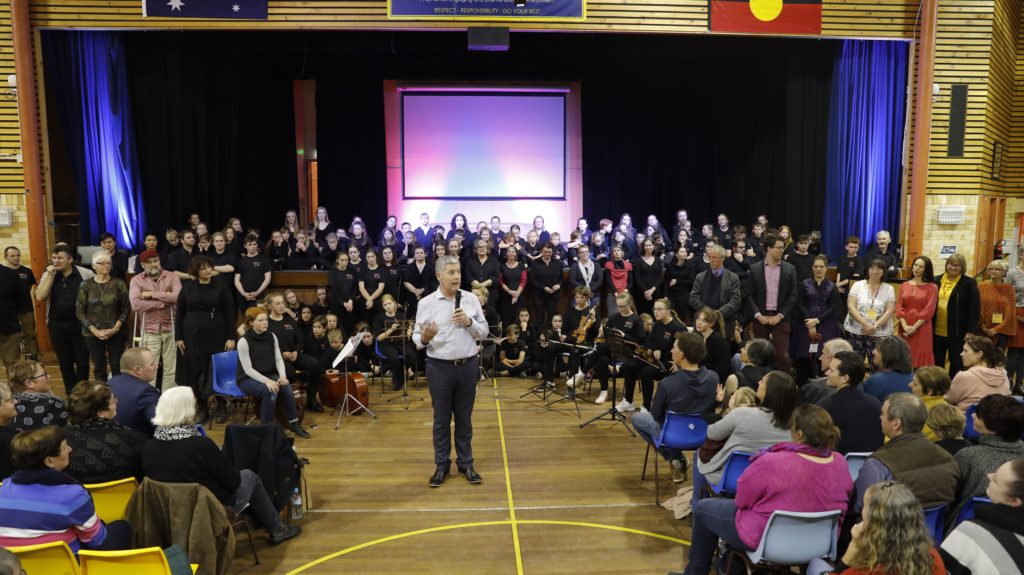
Hartbeat of the Bush supports arts, music and cultural development programs in regional and remote communities. This initiative was designed as a whole of community project, to enable participants to socialise with others from across and beyond their region. In total, around 160 participants attended the Winter School, travelling from Brisbane, the Gold Coast, Toowoomba, Ashford, Texas and Newcastle and lots of other little places in between.
The program kicked off with the Big Chilly Sing, a day-long singing and song-writing workshop that gave locals a chance to converge and get the toes tapping. This was followed by a range of courses and concerts for students of all ages delivered by more than 50 teachers, many of whom are internationally-acclaimed.
A range of concerts were also put on by the Winter School music educators themselves, which were attended by 220 people each night. Locals and visitors alike were treated to a folk concert, jazz performances, a chamber music concert, an opera night, a piano concert and of course, the final night culminated in one of the biggest concerts Tenterfield has ever seen. The finale was a rendition of the legendary Peter Allen song Tenterfield Saddler, performed by all of the Winter School attendees, and arranged by Pete Churchill, who led the Jazz studies program.
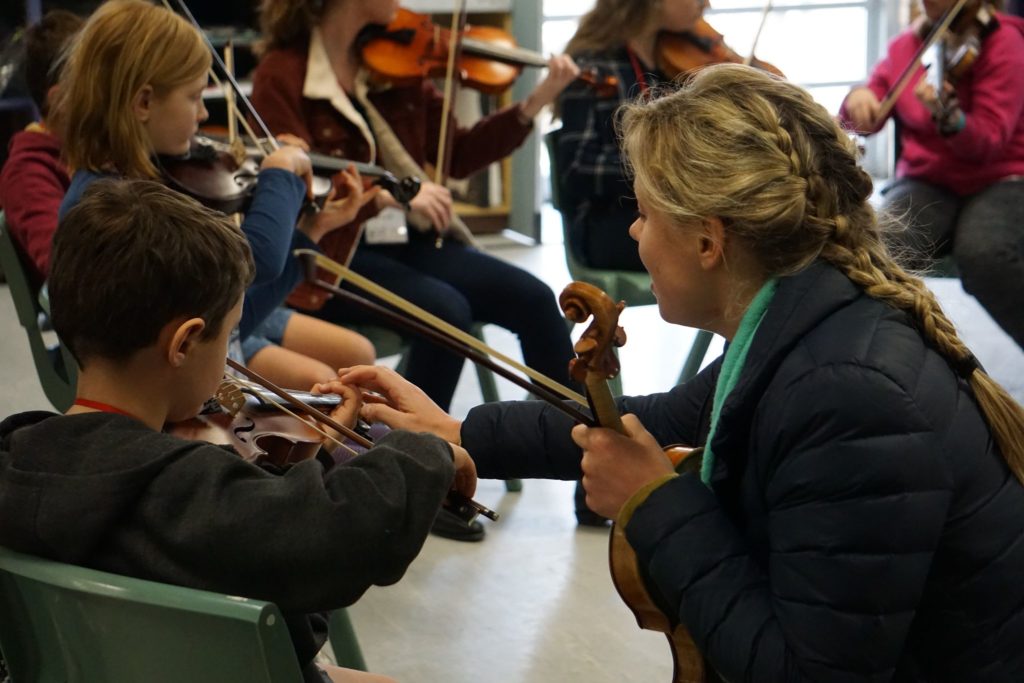
Musical experiences like this help children develop social skills and build confidence. Children from all over the region who had never met one another, played an instrument nor sung in a choir before this program amazed their family members with the talent and skills they had learnt in just five days. Many of these children are still in contact with each other and cannot wait for the next event.
What’s more, the economic benefits for the town were significant, with cafes, restaurants and retail outlets benefitting from a lot of foot traffic at a time when the drought impact was being deeply felt. A large number of local community groups were involved in some way, from making lunches and morning teas to providing venues for the concerts.
Hartbeat of the Bush President Ms Helen McCosker said it was a whole of community effort.
“The whole community was abuzz – even though we had had fires, drought and could no longer drink the town’s water, we had provided the businesses with a little sense of what was normal, something to look forward to and grow for our little country town.”
The $20,000 grant received by Hartbeat of the Bush was funded by the Australian Government through FRRR’s Tackling Tough Times Together program. This covered the costs of running free daily buses within a 100 km radius for commuters from Warwick, Bonshaw, Glen Innes and Tabulum, as well as accommodation at the local Tenterfield Motor Inn for tutors (both overseas and those from Brisbane) and volunteers.
Drake is a small town in the shire of Tenterfield, located on the border of NSW and QLD. With one pub, one shop, one community centre and most properties coming in at around 100 acres, there is little opportunity for interaction and entertainment between community members. There was an interest among residents in learning more about permaculture, particularly as the land can be quite unforgiving when trying to grow food and plants.
The Granite Border Landcare Committee (GBLC) saw an opportunity to teach the community new skills, create new shared community resources and foster connections and relationships between neighbours through the creation of a six-part permaculture workshop series.
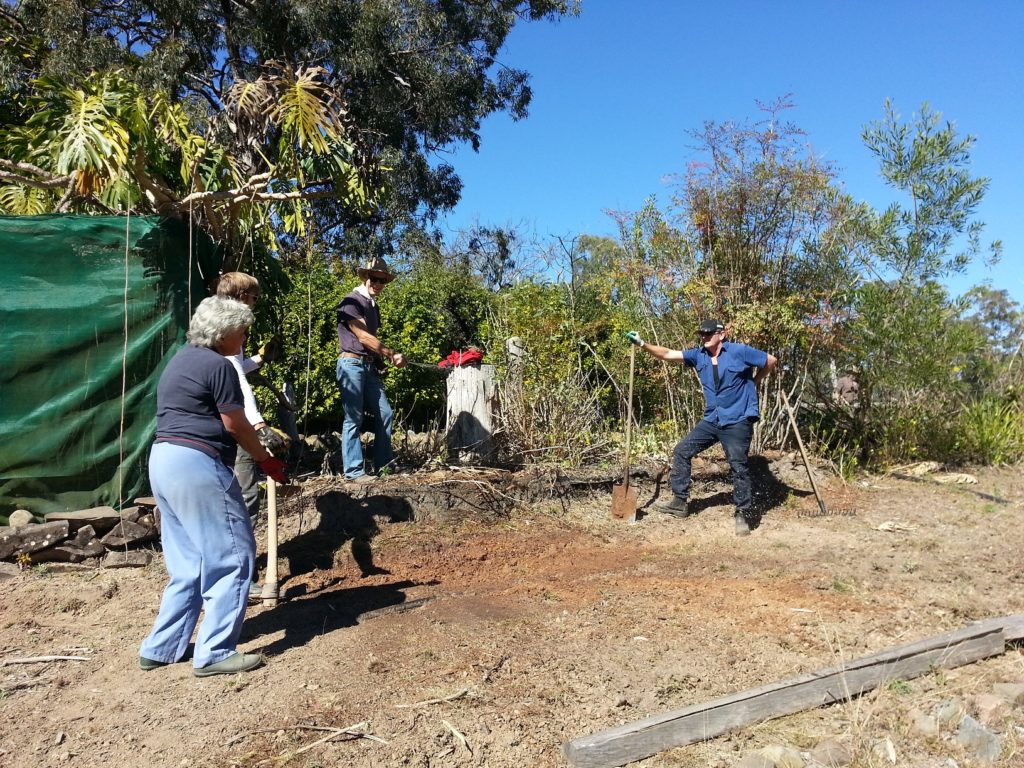
With a $4,000 Small Grant, funded by The Yulgilbar Foundation, the GBLC was able to create and deliver this workshop series over a six month period.
Amanda Craig, who managed the program, said the project established a strong, energetic, community focused group with a core membership of 10 people.
“While the overall aim was to establish a permaculture group, which it has done, the community benefits are greater than that.”
“The group members and other interested people that attended workshops have established strong ties within the small isolated community and are now branching out to include other activities as the recent garden make over at the community resource center,” Amanda said.
The workshops included Build a Chook Pen, Build a Raised Garden Bed in a Mandala Circle Garden, Learn to Build Compost Bays, Building Swale’s Workshop, Propagating Vegetable Seedlings, Build a Wicking Bed and How to Build a Greenhouse. The six-month series helped to build community connectedness, improve local community infrastructure, and develop a volunteer community group.
Since completing the series, this group has continued to hold workshops and is working on beautifying the garden around the local community centre.
30 communities share in small grants
Schools, sports clubs and a rural fire brigade are among the 30 not-for-profit organisations in rural and regional cotton-growing communities to receive a $5,000 boost from the Aussie Cotton Farmers Grow Communities program.
This year marks the seventh round of the Aussie Cotton Farmers Grow Communities program, which the Crop Science division of Bayer delivers in partnership with the Foundation for Rural & Regional Renewal (FRRR). This year’s program takes the total investment into cotton communities to more than one million dollars.
Local cotton growers nominated each of the not-for-profits that are receiving funds, which will help strengthen community resilience and positively impact the wellbeing of cotton-growing communities.
FRRR CEO Natalie Egleton said a consistent theme across nominations this year was a strong desire to boost morale and maintain community spirit in the face of drought.
“Local cotton-growing communities, already dealing with the stresses of sustained drought, have told us of the additional strain caused by COVID-19 restrictions. For these groups, normal fundraising activities have been turned on their head with local businesses, already struggling to survive, unable to lend their support to these community organisations,” Ms Egleton said.
“It’s wonderful to have partners like Bayer to be able to help to alleviate some of their fundraising challenges as they work hard to keep their communities connected and address critical community needs.
“There are so many not-for-profit groups and local charities doing wonderful things to make cotton-growing communities great places to live and work. This year we’ve seen many groups seeking support to develop and build organisational and community resilience. Their determination to see their communities thrive, despite the challenges they face, is inspiring,” Ms Egleton said.
Bayer Crop Science Head of Customer Marketing for Australia and New Zealand Tony May congratulated the winners and said the funding will assist in bringing people together again after being disconnected by COVID-19 restrictions.
“Many of the projects being funded will ensure cotton-growing communities can interact and connect with one another safely during the pandemic,” Mr May said.
“The grants will help build community gardens, upgrade facilities for digital learning and enhance outdoor areas to foster connections.”
Gogeldrie Rural Fire Brigade in central north Riverina NSW, was a recipient of one of the 30 Aussie Cotton Farmers Grow Communities grants. The brigade plan to use the grant to invest in suitable gym equipment to ensure the safety of its users. Currently gym users are improvising, including dragging around spare tyres tied on with rope.
On hearing they had been successful, Gogeldrie Fire Brigade Captain David Pike said it was fantastic news and would make a big difference to their small community.
“Providing appropriate gym equipment will be a nice reward for our volunteer fire fighters and motivate our farmers to come together and put their health and wellbeing first, more often,” Captain Pike said.
The full list of grant recipients and their projects are below.
Jump to : NSW Communities | QLD Communities
| Organisation | Project | Location | Grant |
|---|---|---|---|
| NEW SOUTH WALES | |||
| Darling River Food & Fibre (Bourke) | |||
| Bourke & District Children’s Services | Enhance community identity and connection through the installation of a culturally relevant outdoor space. | Bourke | $5,000 |
| Gwydir Valley | |||
| Moree & District Historical Society | Develop organisational resilience and capacity through the installation of solar panels. | Moree | $5,000 |
| St Philomenas Catholic School Moree P & F | Support school engagement and enhance learning outcomes through the construction of an outdoor classroom. | Moree | $5,000 |
| Lower Namoi | |||
| Wee Waa Branch Country Women’s Association of NSW | Increase community inclusion through construction of a safety ramp to support access to the CWA hall. | Wee Waa | $5,000 |
| Wee Waa Rotary Club Inc | Support organisational capacity through the purchase of a portable coolroom. | Wee Waa | $5,000 |
| Macquarie | |||
| Trangie Country Women’s Association – Country Women’s Association of NSW | Increase community inclusion through the installation of safety railing to a newly installed ramp at the CWA hall. | Trangie | $5,000 |
| Warren Central School | Support life long learning through the establishment of a kitchen garden program. | Warren | $5,000 |
| Warren Youth Support Group Incorporated | Facilitate positive engagement and support of young people through the installation of a permanent gazebo and outdoor furniture. | Warren | $5,000 |
| Mungindi Water Users | |||
| Mungindi Junior Rugby League Club Inc | Foster social wellbeing and connectivity through a kitchen upgrade. | Mungindi | $5,000 |
| Southern Valleys | |||
| Coleambally Central School P&C Association | Enhance educational opportunities through the construction of a covered area linking classrooms and providing a safe all-weather play area. | Coleambally | $5,000 |
| Gogeldrie Rural Fire Brigade | Support individual and community health and wellbeing through the purchase of gym equipment. | Gogeldrie | $5,000 |
| Griffith Public School Parents and Citizens Association | Increase educational opportunities through the purchase of readers for junior classrooms. | Griffith | $5,000 |
| Hillston Billylids Inc | Enhance educational opportunities and social skill development through the purchase of digital learning resources and upgrade to play area. | Hillston | $5,000 |
| Country Education Foundation of Coleambally-Darlington Point Incorporated (CEFCPD) | Support lifelong learning, education and training through the support of a grants program that enables young people to complete post secondary education. | Coleambally | $5,000 |
| Murrumbidgee Shire Council | Foster community health and wellbeing through fencing of a community garden. | Coleambally | $5,000 |
| Upper Namoi | |||
| Carroll Community Bus Incorporated | Foster community connectivity and resilience through repairs to the community bus. | Carroll | $5,000 |
| Ooranga Family Mobile Resource Unit Assoc Inc | Provide access to diverse learning environments through the replacement of the existing kitchen. | Gunnedah | $5,000 |
| Spring Ridge Public School Parents and Citizens Association | Enable participation in educational opportunities through support of an annual student trip to Canberra. | Spring Ridge | $5,000 |
| QUEENSLAND | |||
| Central Highlands | |||
| Rolleston Cricket Club Inc | Build community resilience through the purchase of a defibrillator and ice making machine. | Rolleston | $5,000 |
| Darling Downs | |||
| 11th Light Horse Darling Downs Troop Inc. | Support the preservation of local history by upgrading facilities that house historical memorabilia. | Highfields | $5,000 |
| Cecil Plains History Group | Support organisational resilience and the promotion of local history through the installation of a rainwater tank and purchase of display stands. | Cecil Plains | $5,000 |
| Friends of Jondaryan Woolshed Inc | Enhance the preservation and promotion of local history through exhibit fencing to protect historical artifacts. | Jondaryan | $5,000 |
| Rotary Club of Dalby Inc | Increase organisational capacity through upgrade of existing catering trailer. | Dalby | $5,000 |
| Wheatlands Primary P&C Assoc | Enhance student learning opportunities and support community connection, through the provision of a protected outdoor space. | Wheatlands | $5,000 |
| Dawson Valley | |||
| Theodore Bowls Club Incorporated | Develop organisational resilience and capacity through the provision of a ride on mower and outdoor vac. | Theodore | $5,000 |
| Dirranbandi | |||
| Dirranbandi Arts Council Incorporated | Increase volunteer comfort and safety through the installation of meeting room air conditioning and security cameras to community spaces. | Dirranbandi | $5,000 |
| Macintyre Valley | |||
| Lundavra Primary P&C Association | Support student wellbeing and community resilience, through the purchase of a water tank to maintain school grounds. | Lundavra | $5,000 |
| Macintyre Ag Alliance Inc. | Support environmental outcomes through the purchasing of weed spraying equipment. | Goondiwindi | $5,000 |
| St George | |||
| St George Tourism and Museum Association Inc. | Support community resillience and raise community morale through restoration of a historical building. | St George | $5,000 |
| Northern Australia (North of Latitude 21.15 degrees South) | |||
| Cowboys Charity Limited | Support learning opportunities for Indigenous students through fit out of boarding room accomodation. | Townsville | $5,000 |
When a popular city-based summer school music program made plans to bring the beat to the bush and put on a show alongside it, the whole community of Tenterfield NSW let the rhythm takeover.
Recently ravaged by drought and fires, the small town was experiencing some hard times. Charitable organisation Hartbeat of the Bush teamed up with the Cuskelly College of Music’s Winter Music School in a bid to provide Tenterfield and the surrounding communities with a brief respite from it all – the result was a week long ‘Beat of the Bush’ festival during the July 2019 holidays.
Dr James Cuskelly has run a Summer School music program in Brisbane for years, but it was his long-held dream to bring the music back to the bush, to his roots. Despite the evidence that incorporating music in a child’s education shows life changing benefits, such as improving literacy, numeracy, confidence, behaviour and wellbeing, 63 percent of primary schools in Australia offer no classroom music. In regional and remote schools, there is limited or no musical and arts based education, and opportunities for children to actively participate as performers and artists, under the mentorship of professionals and in front of an audience, is rare and for some non-existent.
Hartbeat of the Bush supports arts, music and cultural development programs in regional and remote communities. This initiative was designed as a whole of community project, to enable participants to socialise with others from across and beyond their region. In total, around 160 participants attended the Winter School, travelling from Brisbane, the Gold Coast, Toowoomba, Ashford, Texas and Newcastle and lots of other little places in between.
The program kicked off with the Big Chilly Sing, a day-long singing and song-writing workshop that gave locals a chance to converge and get the toes tapping. This was followed by a range of courses and concerts for students of all ages delivered by more than 50 teachers, many of whom are internationally-acclaimed.
A range of concerts were also put on by the Winter School music educators themselves, which were attended by 220 people each night. Locals and visitors alike were treated to a folk concert, jazz performances, a chamber music concert, an opera night, a piano concert and of course, the final night culminated in one of the biggest concerts Tenterfield has ever seen. The finale was a rendition of the legendary Peter Allen song Tenterfield Saddler, performed by all of the Winter School attendees, and arranged by Pete Churchill, who led the Jazz studies program.
Musical experiences like this help children develop social skills and build confidence. Children from all over the region who had never met one another, played an instrument nor sung in a choir before this program amazed their family members with the talent and skills they had learnt in just five days. Many of these children are still in contact with each other and cannot wait for the next event.
What’s more, the economic benefits for the town were significant, with cafes, restaurants and retail outlets benefitting from a lot of foot traffic at a time when the drought impact was being deeply felt. A large number of local community groups were involved in some way, from making lunches and morning teas to providing venues for the concerts.
Hartbeat of the Bush President Ms Helen McCosker said it was a whole of community effort.
“The whole community was abuzz – even though we had had fires, drought and could no longer drink the town’s water, we had provided the businesses with a little sense of what was normal, something to look forward to and grow for our little country town.”
The $20,000 grant received by Hartbeat of the Bush was funded by the Australian Government through FRRR’s Tackling Tough Times Together program. This covered the costs of running free daily buses within a 100 km radius for commuters from Warwick, Bonshaw, Glen Innes and Tabulum, as well as accommodation at the local Tenterfield Motor Inn for tutors (both overseas and those from Brisbane) and volunteers.

